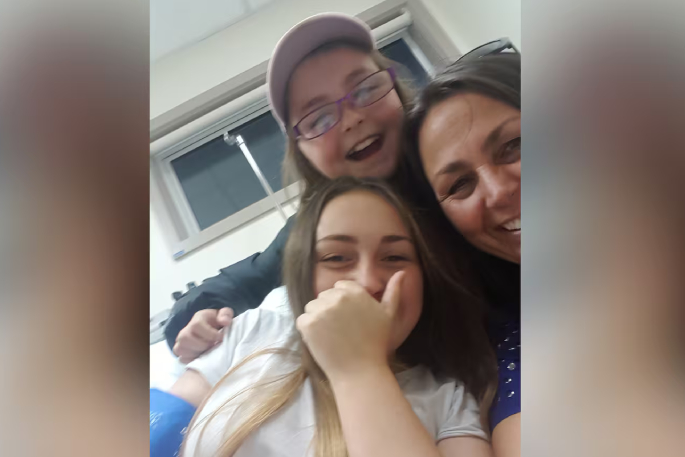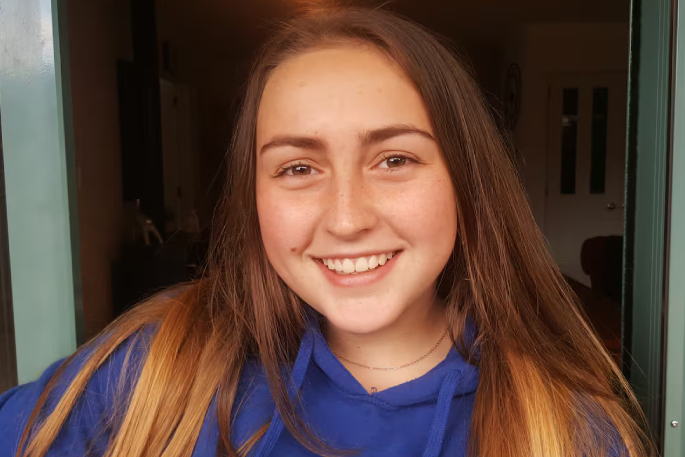When Leanna Petherick walked into her asthmatic daughter’s bedroom to give her medication to help her breathe, she knew something was seriously wrong.
But she also knew exactly what do, after being advised by doctors the last time 17-year-old Tayla was hospitalised following a bad attack – call 111 and ask for an ambulance.
“They said ‘don’t put her in a car, moving her will make her worse... whatever you do with an asthma attack don’t waste your time, ring us, we will be there with the oxygen’.”
The Tauranga mother followed their advice and called 111 – but by the time paramedics arrived her daughter was unconscious and couldn’t be revived.
“I knew what to do, and I did it, and it didn’t work,” she said.
“They arrived too late, I had already lost my daughter.”
Four years later she’s sharing her story for the first time after a recently released Health and Disability Commission report found Petherick’s long-held belief was true: The ambulance wasn’t sent as urgently as it should have been.
“This should never have happened, from the first 111 call that night we waited but no one came, and we had to make a second call. The six-minute drive from the hospital to my daughter took them 28 minutes.”
“I can’t understand why they didn’t come when I called them and told them how bad she was.
“We have to live with this forever.”
The night that changed everything
The night Tayla died had been unremarkable.
Dinner, clean up, and Tayla tinkering on the piano and singing in her bedroom.
Tayla had had chronic asthmatic since she was two, and Petherick spent 15 years managing her attacks with prescribed prednisone and a nebuliser at home.
That night, the nebuliser failed and Tayla was struggling to breathe.
Petherick called 111, holding her daughter’s hands and trying to keep her calm as she spoke to the call handler, passing on questions about her breathing and ability to talk and relaying the information.
But the call handler made an error – he failed to understand, and clarify, the degree of difficulty Tayla was having breathing. He then incorrectly coded the priority of the ambulance.
The mistake meant a nearby ambulance was sent on a break, rather than to the Petherick home where Tayla was deteriorating rapidly.
Tayla’s younger sister Tuesday and Tayla’s boyfriend ran out to the street to meet the paramedics.
“We were waiting and no one came,” Tuesday recalls.
 Tayla, with her mother and sister, recovering in hospital after an earlier incident where she'd suffered a similar asthma attack, but the ambulance arrived in time.
Tayla, with her mother and sister, recovering in hospital after an earlier incident where she'd suffered a similar asthma attack, but the ambulance arrived in time.
With no sign of the reassuring lights and sirens, Petherick called for someone to ring the ambulance again, as she continued to cling to her daughter’s hands and reassure her help was on its way.
“The last thing, she was looking at me, and I could see the fear on her face and she’s looking at me and her eyes just rolled in the back of her head,” Petherick said.
“I screamed at her to come back and to breathe, just breathe, but I just saw her go.”
When the ambulance arrived, Tayla was unconscious.
CPR was already under way and was continued by paramedics, but she was pronounced dead at 9.38pm.
Petherick attributes no blame to the paramedics who worked on her daughter.
“They know what they’re doing. They can only deal with what they had, and that was arriving too late.”
A fight for answers
Petherick said that night’s events forever changed the landscape of her life. But it’s been the process of getting answers that’s made dealing with her grief impossible.
She’d hoped a coroner’s report would provide answers, but while there was reference to an “adverse” event involving the ambulance dispatch, the actions of Hato Hone St John, and the call handler, were outside its inquiry, and Tayla’s cause of death was recorded as asthma.
Petherick wanted information so she could speak openly about the events of that night.
She met with Hato Hone St John in the latter half of 2020, a few months after her daughter’s death.
“I was actually praying they were going to say the ambulance was in Katikati, and couldn’t get there in time.”
The idea they’d done their best, but physically couldn’t get there would have been more comforting.
Instead, she was told the call handler had not correctly interpreted the given information, which meant the ambulance hadn’t been dispatched in time.
Petherick was reassured the information she’d given had been correct, and even if she had been screaming and yelling, it wouldn’t have changed the call handler’s interpretation.
At the end of the meeting she’d been given flowers, and was aware of the regret felt by one of the local paramedics in attendance. She also assumes the call handler was a kind-hearted person who would have a battle to come to terms with their mistake.
But she also believes the overarching response from the organisation felt like a formality, and it hadn’t taken full responsibility for the trauma she and her family had suffered.
“It felt really cold, like I was causing them trouble,” she said.
This feeling was amplified upon her receiving a letter from Hato Hone St John this week.
It was three paragraphs and began saying: “Further to the final recommendations from the Health and Disability Commission (HDC) dated April 9 2024, I write to offer Hato Hone St John’s sincere apologies...”
Petherick said it reads like a compliments slip.
Sharing Tayla’s story
Now that the HDC report has been released, Petherick is hopeful she can put a “full stop” in place.
“It’s official, it’s registered, it’s in the history books. It’s not just a conversation [St John] have had with me.”
Until now, very few people have known what happened the night Tayla died but Petherick hopes she will now be confident to share more openly with those around her.
She grieves the milestones she will miss with her “rainbow” baby and songbird who loved music and had been through some turbulent times, but was coming out the other side, having just turned 17.
Petherick’s personal advice to parents with asthmatic children goes against what she was given.
“If you’re close, get in the car. They could be on a break, they could be short-staffed... against doctor’s advice, just get in the car.”
The ambulance dispatcher was employed by Hato Hone St John, while the call handler worked for Wellington Free Ambulance as the organisations share call centres. Neither remain in their respective roles.
In a statement, Hato Hone St John General Manager, Clinical Effectiveness, Jon Moores said, “[we] would like to express our sincerest condolences to Ms Petherick, and we apologise unreservedly for failing to deliver the appropriate standard of care.”
The organisation has undertaken a review, accepted the HDC findings and welcomed further feedback Petherick might have.
“We use a structured, internationally recognised triage tool to identify and triage asthma incidents. Our staff receive continual training in the use of the tool and we routinely review learnings.”
In a statement, Wellington Free Ambulance (WFA) said it wished to acknowledge the profound loss of the family and whānau who have been impacted by this incident.
They made changes to their training and said; “the call is regularly used as a case study during mentoring and training for all new call-handling staff at WFA”.
It has “requested advice from the International Academies of Emergency Dispatch (IAED) regarding the appropriate questioning and any possible reframing around difficulty breathing”.





1 comment
This story defines tragedy.y.
Posted on 04-06-2024 17:58 | By morepork
I was moved when I read this. It's not about blame, it's about a series of events conspiring to an unimaginably awful result. There are so many cases in so many fields of endeavour, where people do their best, but it simply isn't good enough. The despatcher simply got it wrong. How wrong? Dead wrong. There was no malice or intention to cause harm; just simple human error. This case is simply a tragedy and the family and Hospital staff must live with what happened, but we can all agree that the cost of this error was far too high.
We need to do better. Wherever there is a risk to Human life if a system fails, that system and the people implementing it, need to be trained to a level where they are fail safe, and checked out to be so.
Leave a Comment
You must be logged in to make a comment.